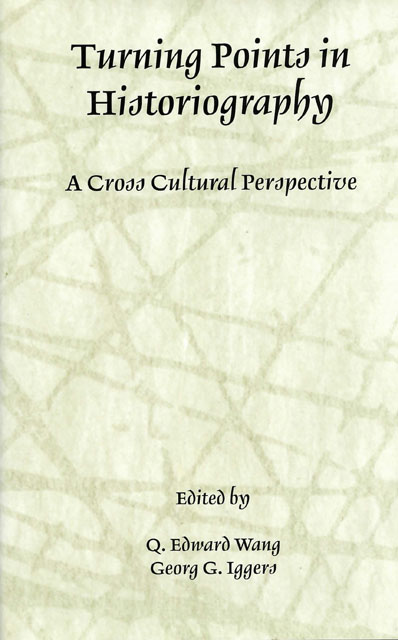Book contents
1 - Introduction
Published online by Cambridge University Press: 29 February 2024
Summary
“Turning point” as a metaphor has a broad appeal to people interested in change. It has hitherto been used by psychologists, sociologists, educators, philosophers, and most of all, historians, to identify a major event, or a series of events, in the history of a life, a discipline, an institution, a society, or civilization. Such an event is seen in retrospect to have influenced the future course of development of the society being scrutinized. In his lecture series on the rise of Europe delivered in Japan, Geoffrey Barraclough, an eminent English historian, offered an example of how to identify turning points in history. He argued that the major turnings points at which Europe distinguished itself from the rest of the world and eventually gained prominence and dominance, occurred first in the period between 1076 and 1122, and secondly during the Scientific Revolution of the seventeenth century. Why these two periods, rather than the more commonly known events such as the Renaissance and the Reformation, or the French Revolution? Because, Barraclough explained, those conventional “turning points” had only regional impacts, whereas the church-state conflict of the eleventh and twelfth centuries and the Scientific Revolution of the seventeenth caused more significant changes in European history and helped Europe exert a greater impact on the course of world history.
Barraclough's observation may still be debatable among European historians. But his interest in identifying turning points in history from a world perspective was shared by A. L. Macfie, who authored The End of the Ottoman Empire, 1908–1923 in Longman's new Turning Points series. To Macfie, although in the Near and Middle East there had not been many historical turning points, “few, if any, can compare in the range and profundity of its consequence with the collapse of the Ottoman Empire.” The magnitude of the collapse was unprecedented in Macfie's opinion, because Macfie, like Barraclough, viewed its impact from a global perspective. The empire's fall constituted the ultimate cause for the outbreak of World War I.
Although historians seem fond of identifying turning points in history, they have not done so for the development of their own discipline.
- Type
- Chapter
- Information
- Turning Points in HistoriographyA Cross-Cultural Perspective, pp. 1 - 16Publisher: Boydell & BrewerPrint publication year: 2001

